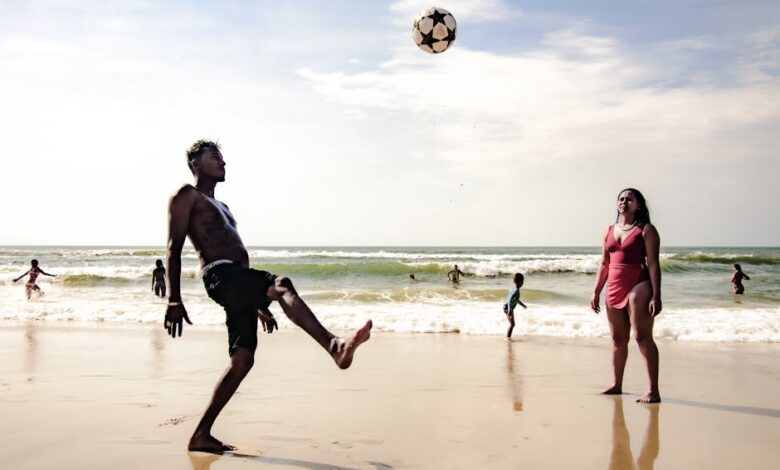Scotland 2-1 Belarus: Report, Result and Goals as Hosts Take Giant Leap Towards World Cup

Scotland 2-1 Belarus: Report, Result and Goals as Hosts Take Giant Leap Towards World Cup
Estimated Reading Time: 5 minutes
- Scotland secured a vital 2-1 victory over Belarus, significantly boosting their World Cup qualification hopes.
- The team demonstrated strong resilience, bouncing back after conceding an equaliser to score a decisive late winner.
- Tactical adjustments by Steve Clarke and impactful substitutions, notably John McGinn, were crucial in turning the tide.
- This win instills a renewed sense of belief and momentum within the squad and among the Tartan Army, bringing World Cup dreams closer.
- Identified areas for ongoing improvement include enhancing defensive concentration and diversifying attacking strategies.
- A Performance Forged in Resilience and Attacking Flair
- The Road Ahead: World Cup Dreams within Reach
- Key Takeaways and What’s Next for Scotland
- Conclusion
- Frequently Asked Questions (FAQ)
Hampden Park erupted in a cacophony of relief and celebration on a pivotal night for Scottish football, as Steve Clarke’s men secured a hard-fought 2-1 victory over Belarus. This crucial result not only added three vital points to their World Cup qualifying campaign but also saw the Tartan Army take a giant, decisive stride towards securing their place at the pinnacle of international football. The atmosphere was electric, the stakes immense, and in the end, Scotland delivered, albeit with a few nervy moments that kept fans on the edge of their seats until the final whistle.
From the outset, Scotland understood the assignment. Anything less than a win would have severely hampered their aspirations, particularly with other teams in the group vying for the same prize. The pressure was palpable, but the home side rose to the occasion, demonstrating a blend of tactical discipline, individual brilliance, and unwavering determination. This report delves into the key moments, player performances, and the broader implications of a night that could define a generation of Scottish football.
A Performance Forged in Resilience and Attacking Flair
The match began with Scotland asserting dominance, controlling possession and probing the Belarusian defense. The opening exchanges were a testament to Steve Clarke’s strategic approach, focusing on quick transitions and exploiting the flanks. It wasn’t long before their efforts bore fruit. In the 23rd minute, a surging run down the left wing by Andy Robertson culminated in a pinpoint cross that found the head of striker Lyndon Dykes. Dykes, known for his aerial prowess, made no mistake, powering the ball past the Belarusian goalkeeper to give Scotland a deserved lead and send Hampden into raptures.
The goal settled some nerves, allowing Scotland to play with more freedom. They continued to press, creating several half-chances, but Belarus, despite being pegged back, showed flashes of resilience. Their defensive block was organised, and they looked to hit Scotland on the counter-attack, though without significant threat in the first half. Scotland’s midfield, anchored by the tireless Scott McTominay, effectively stifled any nascent Belarusian attacks, ensuring the home side maintained their grip on the game’s tempo.
The second half, however, brought a different dynamic. Belarus emerged with renewed vigour, pushing higher up the pitch and challenging Scotland’s defensive line. Their persistence paid off in the 58th minute when a rare defensive lapse from Scotland allowed their forward to latch onto a through ball. He finished expertly, drawing Belarus level against the run of play and plunging Hampden into a moment of stunned silence. The equaliser served as a stark reminder of the fine margins in international football and the need for absolute concentration.
Far from buckling under pressure, Scotland responded with character. Steve Clarke made tactical adjustments, bringing on fresh legs to inject pace and creativity. The introduction of John McGinn proved particularly impactful. His energy and drive revitalised the midfield, pushing Scotland forward once more. The decisive moment arrived in the 76th minute. A corner kick, expertly delivered by Ryan Christie, found Grant Hanley rising highest amidst a crowded penalty area. His header, powerful and precise, restored Scotland’s lead, sparking an explosion of joy from the Tartan Army. From that point onwards, Scotland managed the game effectively, holding off a late Belarusian surge. It was a routine win for Steve Clarke’s men in terms of controlling much of the possession and chances, despite the brief scare.
The Road Ahead: World Cup Dreams within Reach
This 2-1 victory is far more than just three points; it’s a statement of intent. It propels Scotland into a commanding position within their World Cup qualifying group, cementing their status as genuine contenders for a coveted spot in the finals. With only a handful of games remaining, the mathematical possibilities have swung significantly in their favour, creating a palpable sense of anticipation and belief that has been absent for too long.
The atmosphere surrounding the national team has undergone a remarkable transformation under Steve Clarke. There’s a newfound resilience and tactical nous that allows them to navigate challenging fixtures and emerge victorious, even when not at their absolute best. This win, while not a flawless performance, showcased their ability to respond to adversity, a critical trait for any team harbouring major tournament ambitions. The focus now shifts to maintaining this momentum and avoiding complacency in the remaining fixtures.
Historically, Scotland has often found itself agonisingly close to major tournaments, only to fall short at the final hurdle. For instance, the Euro 2008 qualifying campaign saw them beat France home and away, only to miss out on qualification on the last day after a defeat to Italy. This current squad, however, feels different. There’s a steeliness and a collective belief that suggests they are ready to write a new chapter in Scottish football history, learning from past heartbreaks to forge a brighter future. The challenge now is to convert this strong position into tangible qualification.
While the victory was undoubtedly a cause for celebration, an expert eye will always identify areas for continued improvement. The coaching staff will be meticulously analysing the performance, fine-tuning tactics, and preparing for the ultimate push towards qualification.
-
Maintain Momentum and Focus:
The biggest challenge for Scotland moving forward will be psychological. The team must guard against complacency and maintain the same level of intensity and focus that has brought them to this strong position. Each remaining match must be treated as a final, with no room for error. The mental fortitude developed during this campaign will be crucial in navigating the high-pressure environment of the final qualifying fixtures.
-
Shore Up Defensive Lapses:
While generally solid, the concession of the equaliser against Belarus highlighted a momentary lapse in concentration at the back. Against stronger opposition, such errors can be severely punished. Steve Clarke will undoubtedly be working on eliminating these small defensive frailties, ensuring the backline remains disciplined and alert for the entirety of every match. This includes clearer communication and tighter marking, especially in transitional phases.
-
Diversify Attacking Options:
Scotland’s goals often come from set-pieces or direct attacking runs from wide players. While effective, developing more varied attacking patterns will make them less predictable. Practising intricate passing moves in the final third, encouraging more shots from distance, and fostering greater interplay between the forwards and attacking midfielders could unlock new dimensions to their offensive play, making them a more formidable force against diverse defensive strategies.
Conclusion
The 2-1 victory over Belarus was more than just a win; it was a watershed moment in Scotland’s World Cup qualifying journey. It was a night where resilience met ambition, and the collective spirit of a nation was on full display. Steve Clarke’s squad has not only demonstrated their capability on the pitch but also instilled a renewed sense of hope and pride among the Tartan Army. With their World Cup dream now tantalisingly close, the focus shifts to the final push. The journey is far from over, but this giant leap has firmly placed Scotland in the driver’s seat, poised to make history.
What are your thoughts on Scotland’s performance and their World Cup qualification chances? Share your predictions for the upcoming matches in the comments below!
Frequently Asked Questions (FAQ)
Q: What was the final score of the Scotland vs. Belarus match?
A: Scotland defeated Belarus 2-1.
Q: Who scored Scotland’s goals in the match?
A: Lyndon Dykes scored the first goal, and Grant Hanley secured the winner.
Q: What does this victory mean for Scotland’s World Cup qualification chances?
A: The victory significantly propels Scotland into a commanding position within their World Cup qualifying group, bringing them closer to securing a spot in the finals.
Q: What areas for improvement were highlighted for the Scotland team?
A: Key areas include maintaining momentum and focus, shoring up defensive lapses, and diversifying attacking options.
Q: Who is the manager of the Scotland national football team?
A: Steve Clarke is the manager of the Scotland national team.





